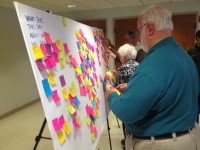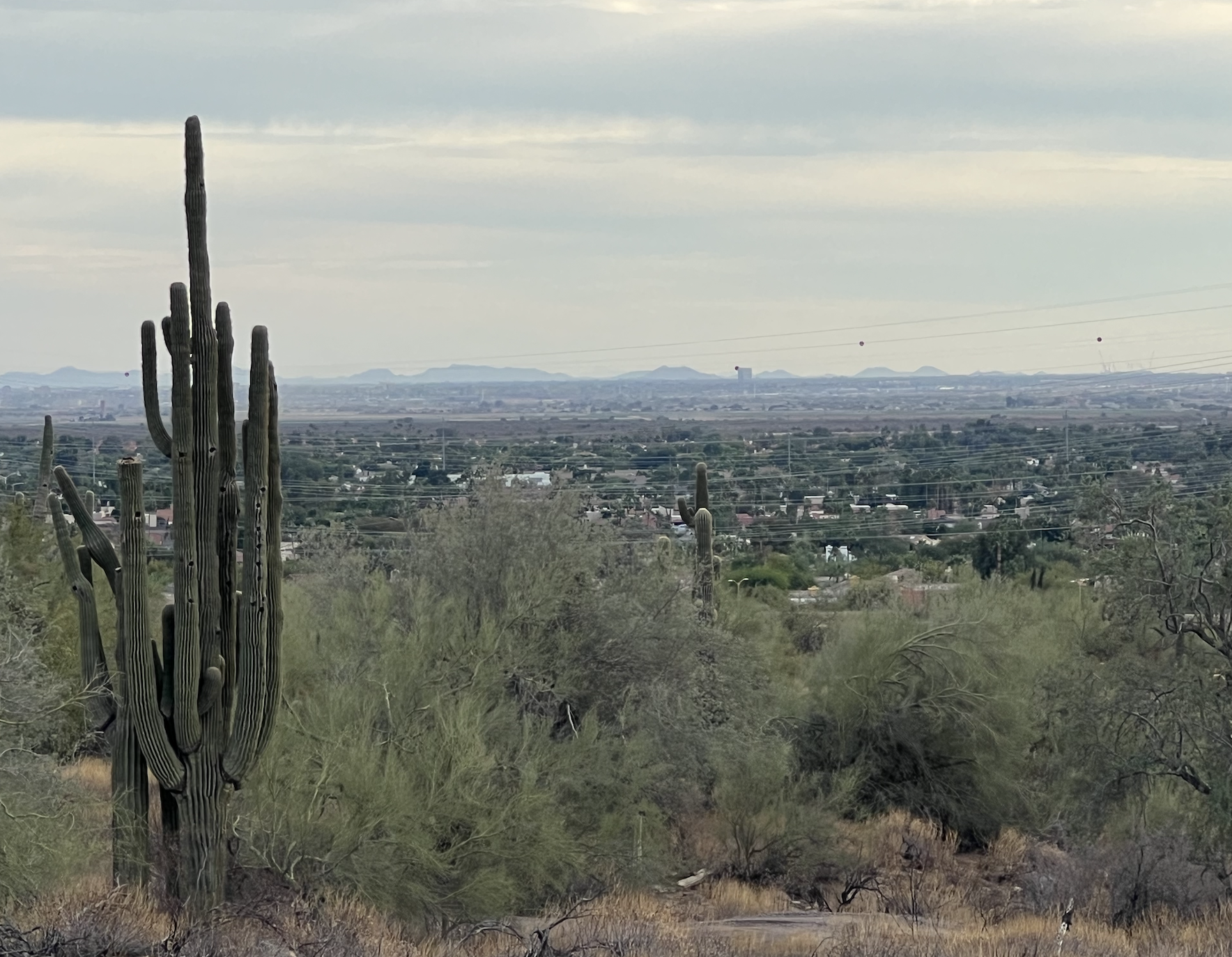Last week I worked with Chris Corrigan, Caitlin Frost, Charles LaFond, Rae Denman, Mark Queirolo, and a really insightful team at the Saint John’s Cathedral in Denver, Colorado. Chris, Caitlin, and I are longtime friends and colleagues. I trust them for their big hearts and really mad skills. Charles, Rae, and Mark are from the Cathedral. They too, are big in heart and very skilled. They are leaders helping to invite a legitimacy of dreaming together — how crazy — as a parish and cathedral community. It is work that is on the front edge, impressively so.
Last week I both remembered something central to me, and learned something new from Chris and Caitlin about sense-making within the methodology of The World Cafe. The remembering is found in the title of this post. Chris spoke it, and a bit more. “You don’t build bridges for cars with stories, and you don’t build communities of people with data.”
It’s catchy, right. In this reference, Chris was pointing to the fact that if building a physical bridge, it’s not enough to say, “well, when I was a kid, I once used a plank to get across a creek — maybe that will work.” It may have been good as a kid but that’s not enough engineering for tons of cars. Similarly, when building community, like we were doing at Saint John’s, it’s not enough to report, “34% of our parish members attend only one Sunday service per month.” Community building requires sharing stories — what do you love about this place? When have you experienced deep caring here? — that go beyond analyzing data.
The “learned new” part for me was in what we did with the stories. We had people write a headline from the stories told at small table conversations on individual post-it notes. Then, mixed them up completely. Randomly. Each person took one quarter of the table post-its, whether they were theirs or not, and went to a new table. With new table mates, they shared the new stack of post-it insights, and were invited to make sense of them. “What do these tell us about Saint John’s?” The invitation was to create categories from the stories.
 In this picture, that is what people are doing. Moving around hundreds of post-it notes to be in the fundamental act of sense-making together. It takes some intuition. It takes some letting go. It takes some, what-if questioning together.
In this picture, that is what people are doing. Moving around hundreds of post-it notes to be in the fundamental act of sense-making together. It takes some intuition. It takes some letting go. It takes some, what-if questioning together.
In this instance, they came up with 6-8 categories. Good categories that have legs. And, no, the categorizing was not perfect. There could be some important things left out. No different group would organize it the exact same way. That such precision and replication is possible is a seductive myth that has long needed interrupting.
What the categories do, however, is give them areas to be further curious about. You see, part of their work as a cathedral (in this case, a profile committee) is to create a snapshot of who they are (so that they can invite prospective deans to join an ongoing, dynamic inquiry with them, over the course of 10 or so years). It also gives them areas to test — eventually they will put it into a document to see it it accurately represents enough of what they are. Not perfect again, but that isn’t the point. The profile committees work may be to point to some of the visible, but it is also to welcome someone to journey with them in the invisible.
The ability to make sense of experience is fundamental to any community. That means doing things imperfectly, recognizing the subjective in what many of us regard as the objective. That means paying attention to relationships together. That means letting go. Or, dare I say, relaxing ourselves into more stories, not as distraction, but as the way we get things done.

